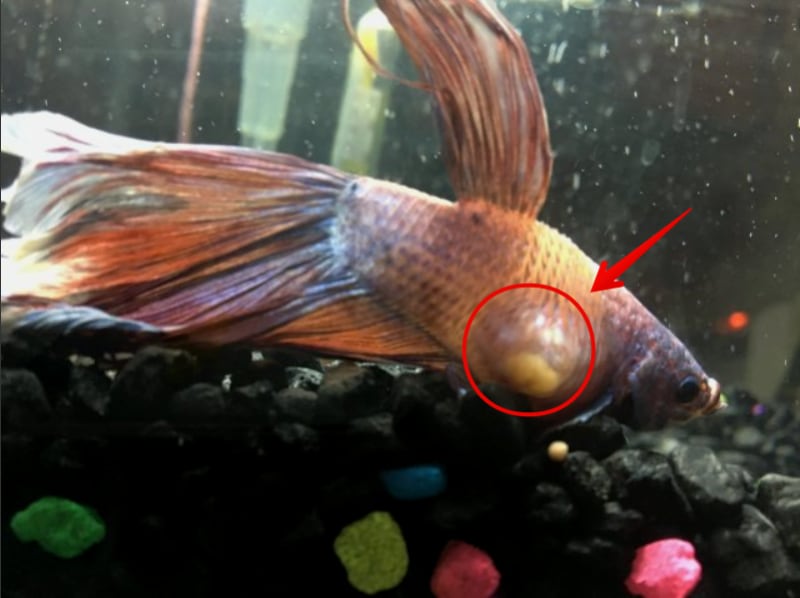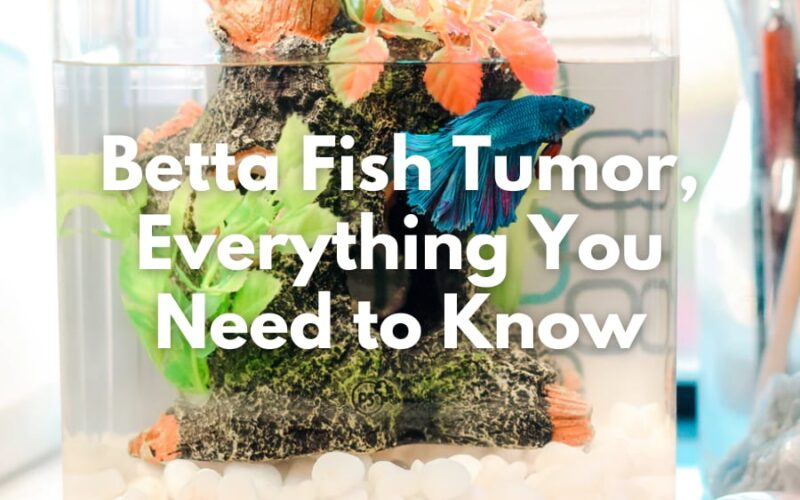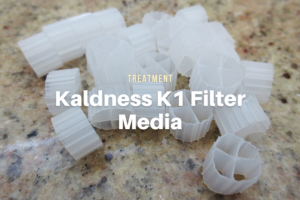Since the beginning of 2020, the trend of raising betta fish has increased again. The beauty of the shape and color of the Betta fish makes people fall in love with it and want to keep it as pets.
However, raising Betta Fish is not that easy. It is because Betta fish are one of the most sensitive and prone to stress. There are times when a betta fish that initially looks healthy suddenly dies due to stress.
Besides stress, many types of diseases commonly attack Betta fish. Some of these diseases can heal on their own. However, some are difficult for owners to detect and treat themselves.
In fact, in some cases, Betta fish only show symptoms when their condition is severe. Therefore, betta fish owners need to recognize the disease before it’s too late.
One of the deadly diseases in Betta fish is cancerous tumors. When your Betta fish has a tumor, it is often unlikely that it will recover.
However, this condition is something that is beyond your control. The causes also vary. Therefore, you need to understand the basics of caring for Betta fish to prevent this disease.
What are the symptoms of a tumor in Betta fish? How to prevent and treat it? Here is an explanation, prevention, and treatment of betta fish tumors you need to know to understand it better.
Signs of Tumors in Betta Fish
As we discussed before, in some cases, tumors in Betta fish can be deadly, especially if you are late in treating the disease.
Also, in some cases, the cancerous tumor can be seen, but it can also be invisible. So, how do you know that your Betta fish has a tumor? What are the signs?
If you find a lump under the skin of your Betta fish, it is likely a tumor. Tumors in betta fish can be as small as warts on a human’s skin or large.
If the lump is large, it can affect the fish’s buoyancy and ability to swim. However, there are times when a tumor in a Betta fish is not visible from the surface of the skin. This type of tumor is the most dangerous one.
When your Betta fish develops an internal tumor, there is little chance of recovery. In other words, there is nothing you can do to save your Betta fish other than to put it to sleep humanely. Because the more you force it, the more painful it will be for it to survive.
However, although deadly, cancerous tumors in Betta fish are quite rare. Among the list of causes of death for Betta fish, cancerous tumors are far at the bottom. Therefore, you don’t need to worry too much as long as you focus on providing the best care.
Causes of Betta Fish Tumors

Internal or external factors can cause betta fish tumors. Genetic factors can cause internal factors. In other words, these fish are low-quality hybrids. In this case, if the cause is genetic, there is not much you can do to prevent tumors.
Meanwhile, things that can be external factors that cause tumors in Betta fish are low-quality foods, unsanitary water, and viral infections.
Unlike genetic factors, you can still prevent external factors with a better understanding of the best treatment for Betta fish.
Betta Fish Tumor Treatment
As mentioned above, for invisible cancerous tumors in bettas, you really can’t do much to cure them. Meanwhile, for external cancerous tumors on betta fish, you can remove them from the betta fish through a surgical procedure.
However, even if you can give it a try, external cancerous tumors surgery carries a high risk. In other words, only experienced veterinarians who specialize in tropical fish can do this procedure. Besides, there is no guarantee that the tumor will not recur in the future.
Betta Fish White Tumor
As mentioned above, the tumors of Betta fish are not always cancerous. It could be that the lump you found is just an abscess or ulcer, both swellings, usually seen as white tumors.
According to some experts, betta fish white tumor can even be said to be not classified as a tumor. Also, in some cases, with proper treatment, the lumps that resemble these tumors can heal.
Abscess or Mass in Betta Fish
If you find a white tumor on your Betta fish’s body, it is not a cancerous tumor but could be an abscess or unidentified mass. In this case, the cause can be a bacterial infection.
Usually, it started by the injuries than by sharp objects or bites from other fish. If the water in the tank is dirty, the bacteria can get into the wound and cause infection.
The bacteria can destroy the tissue around the wound, causing it to rot and form pus. The pus that collects under the skin of the fish then forms a lump or abscess.
Then, if the abscess was not appropriately treated, it will continue to swell until it bursts.
After the abscess has ruptured, the open wound can leave the fish vulnerable to bacterial attack. Furthermore, the cycle can be repeated so that the fish does not heal. Therefore, the cleanliness of the aquarium affects the healing process.
How to Treat Abscess in Betta Fish
When you find an abscess on your fish’s body, immediately remove it from the tank and transfer it to the quarantine tank.
You need to equip your quarantine tank with good water quality and filter system, lighting, temperature, and shelter for fish. In this case, it is also essential to keep the tank clean, especially after the abscess has burst.
You should also provide a hiding place like a cave or something similar in the quarantine tank to reduce the possibility of fish stress. Also, you can add fake plants with subtle materials. Avoid adding native plants because it can increase the number of bacteria in the tank.
Ulcer in Betta Fish
Besides abscesses, other lumps that can appear on the body of a Betta fish are ulcers. A red rash around the bumps is ulcers. In this case, fish with ulcers often lose their appetite, leaving them looking lethargic and thin.
Just like abscesses, bacteria are also the cause of ulcers. Usually, the bacteria are already in clean aquatic and do not harm healthy fish. However, when fish experience stresses due to environmental conditions and bad water quality, they are prone to ulcers.
How to Treat Ulcer in Betta Fish
Just like when treating an abscess, if you find ulcers on your Betta fish, immediately transfer the fish to a quarantine tank.
The main thing you need to pay attention to is the cleanliness of the water. It is because even if the ulcer is not visible, the yeast infection is usually still there.
After changing the tank water, add salt to the tank at a one-quarter ounce per gallon ratio. It serves to accelerate wound healing and reduce infection.
To monitor the salt levels in the water, you can use a hydrometer. Apart from salt, you can also add antibacterial properties to the tank water.
How to Prevent Betta Fish Tumor

Genetic or environmental factors can cause tumors in betta fish. If the cause is genetic, you certainly can’t do much to prevent it.
However, if it is external factors, you can take some precautions. There are several things you can do to avoid betta fish tumors caused by external factors. Some of the preventive steps you can take include the following below.
Choose Trusted Breeder
When buying betta fish, make sure you choose a trusted breeder. You should know some fish shops do crossbreed because it is cheaper than importing.
In this case, the crossbred fish have a greater risk of developing cancer tumors than the pure breed.
Keep the Tank Clean
The second thing you need to pay attention to is the cleanliness of the water in the aquarium. Make sure you keep the water clean and maintain an efficient filtering system.
At least, you need to change 25% of the water every week to prevent bacteria buildup. This step is essential for maintaining the health of your Betta fish.
Maintain the Food Quality
It is also important to maintain the quality of your Betta fish food. In this case, low-quality fish foods tend to have sufficient nutrients and protein.
Meanwhile, nutrients and protein are essential for maintaining the health of your Betta fish.
Treat Infection Immediately
When your Betta shows symptoms of illness or infection, seek treatment immediately. Prepare a quarantine tank, complete with antibacterial and vitamins to maintain fish immunity. You need to do this step quickly, especially to avoid gill hyperplasia.
Beware of Carcinogens
Carcinogenic substances are harmful to living things. Therefore, you need to keep carcinogenic objects away from the water and aquarium. These objects are one of the external factors that can be the main cause of tumors in Betta fish.
Final Words
Those are some things about tumors in Betta fish that you need to know. Although dangerous, cancerous tumors in Betta fish are quite rare. The more common disease is white tumors, which generally heal with proper treatment.
Furthermore, when compared to tumors, more bettas die from stress. In this case, although it is known to live in water with low oxygen levels, betta fish owners need to keep the aquarium clean so that the fish can avoid stress and bacterial infections.
Raising betta fish is not as simple as people think. Cleanliness, nutrition, and attention need to be kept by the owner so that the betta fish’s health is maintained. Therefore, you should consider some of the above explanations before deciding to keep a betta fish.



